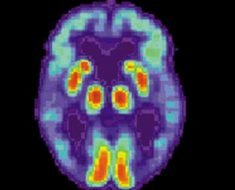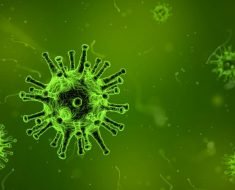
In Belgium, there are 70,000 new adult cases of cancer every year, compared to 350 in children. Owing to lack of interest from pharmaceutical groups, treatments for pediatric cancers are developing much less rapidly than those for adults. The chemotherapy recommended for most childhood cancers is just as toxic as it was 20 years ago. In addition, it has significant consequences for the child: infertility, deafness, and premature ageing. After chemotherapy sessions, the child suffers a loss of stem cells, which are crucial to the healing and regeneration of tissues. The cured child has an entire life to live, yet the capacity of his or her tissues to regenerate has diminished.
For 15 years Anabelle Decottignies, a professor at the UCLouvain de Duve Institute, and her team have been studying telomeres, the little bits of chromosomes that play a vital role in ageing. Normally, telomeres shorten over time, causing cells and organs to age. This is natural ageing. In a cancer cell, telomeres don’t shorten. As a result, the cancer cells don’t age and they divide indefinitely, forming tumours and metastases.
Prof. Decottignies’s goal is to target the cancer cell and safeguard the rest of the body, by forcing telomeres to shorten and thus prevent them from dividing. Achieving this necessitates understanding the mechanisms that allow cancer cells to maintain their eternal youth:
In most cases, the cancer cells reactivate the expression of an embryonic gene. In the first stage of normal embryonic development, our cells are ‘eternally young’ thanks to the enzyme telomerase. In 90% of cancers, this enzyme can awaken, leading to tumours and metastases. In 5 to 10% of cancer cases, most involving children, the cancer cells establish an alternative system based on a mechanism called alternative lengthening of telomeres (ALT). It is completely pathological—in other words, ALT is not active in any of our healthy cells, making it an ideal target for new anti-tumour therapies.
Recently, the UCLouvain team identified a protein that allows the survival of cancer cells that use the ALT mechanism, which is not essential to the survival of healthy cells. Its name: TSPYL5. This protein is absolutely essential to the proper functioning of the telomeres of cancer cells that have the ALT mechanism, but not the telomeres of cells using telomerase or healthy cells. When the TSPYL5 protein is removed, the cancer cells die due to dysfunction of their telomeres. “This is the first time we have found a specific target to fight cancer cells in children,” Prof. Decottignies says.
For the past year, Prof. Decottignies has been working with two other research teams to find new therapeutic molecules targeting TSPYL5: the team of Joris Messens, a professor at the VUB Center for Structural Biology, will identify molecules at the heart of the new therapy; and the team of Benjamin Elias, a chemist and professor at the UCLouvain Institute of Condensed Matter and Nanosciences, will synthesise the therapeutic molecules for ALT cancers.
Source: Read Full Article





